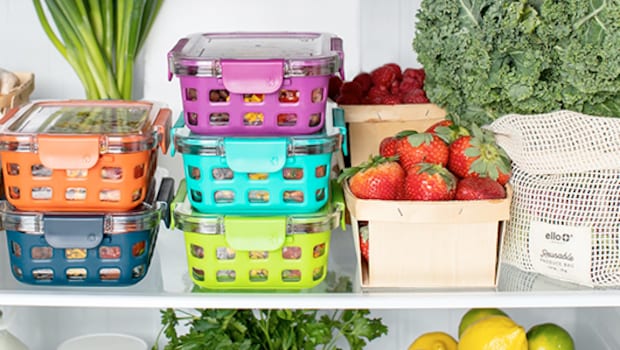Most of us do it without thinking - pop leftovers into the fridge, assuming they will be good to eat the next day (or the day after). After all, the refrigerator is our ultimate food safety guard, right? But is storing your dal or leftover biryani at midnight and reheating it three days later really as safe as it feels? Can we keep storing food without checking how, when, or where it is kept? Turns out, not quite. Improper storage and reheating habits can do more harm than you think. So, if you are used to storing piles of food in the fridge, here is how to eat it safely and retain its nutrition.
Also Read:5 Tips To Increase The Lifespan Of Your Fridge
How To Store Leftovers In The Fridge Safely:

Nutritionist Leema Mahajan shares quick safety tips to help make the most of refrigerated food.
1. Store Food Within 2 Hours Of Cooking
Mahajan says home-cooked food should be refrigerated within two hours. Leaving it out for longer allows bacteria to multiply, which can spoil the food and make it unsafe to eat.
2. Do Not Refrigerate Hot Food Immediately
Placing hot food straight into a cold fridge can backfire. Mahajan explains that the temperature difference may encourage spoilage. Instead, allow the food to cool slightly at room temperature before storing.
3. Use Airtight Food Containers Only
Avoid open containers, as they may lead to cross-contamination. Mahajan recommends clean, airtight containers to prevent the food from drying out or going bad.
4. Stop Reheating The Same Food Repeatedly
One of the biggest errors, according to Mahajan, is reheating food more than once. This not only reduces the nutritional content but also raises the risk of spoilage.
5. Label Leftovers Clearly With Dates
We often forget when we put something in the fridge. Mahajan advises labelling leftovers with the date to avoid guesswork and ensure they are eaten before they go off.
How Long Can You Keep Leftovers In The Fridge?

This is where most people slip up. Even if food looks or smells fine, it may not be safe to eat beyond a point. Mahajan shares that most home-cooked leftovers should ideally be consumed within two to three days. Cooked rice, dals, vegetables, or meat should be eaten in that time frame to minimise bacterial growth.
Milk- or cream-based dishes have an even shorter shelf life and should be finished within 24 to 48 hours. If in doubt, it is safer to discard than risk a stomach bug.
Also Read: 5 Hacks To Keep Your Fridge Clean and Organised
Can You Eat Leftovers Cold From The Fridge?
Technically, yes, but it depends on the food type. If the food was stored hygienically and has not been out of the fridge, certain items like salads or cold pasta can be eaten cold.
However, Mahajan recommends reheating Indian-style dishes such as curries or rice before eating to kill any bacteria and make digestion easier. “Cold food is harder on your gut, especially if it contains fat or starch,” she adds.
4 Foods You Should Not Store In The Fridge:
While it might feel safer to refrigerate everything, Ayurvedic health coach Dimple Jangda says some common foods are better left out, as they can become harmful when stored in the fridge.
1. Garlic

Garlic contains spores that may cause botulism if stored poorly. Jangda explains that when humidity crosses 60 per cent, common inside refrigerators, mould can grow. Refrigerated garlic may sprout and produce mycotoxins, which pose serious health risks.
2. Onion
Onions are sensitive to cold and may develop mould in lower temperatures. Jangda notes that cut onions can also absorb bacteria from the fridge, making them unsafe. She advises using the full onion or discarding leftovers.
3. Ginger
Like garlic, ginger is prone to mould in the fridge. According to Jangda, this green mould can produce ochratoxin A, a mycotoxin that may compromise immunity.
4. Rice
Rice is one of the fastest foods to catch mould. Jangda warns that refrigerated rice may also lead to higher starch levels, affecting blood sugar and cholesterol. It should not be stored for more than 24 hours and must be reheated thoroughly before eating.
Disclaimer: This content including advice provides generic information only. It is in no way a substitute for qualified medical opinion. Always consult a specialist or your doctor for more information. NDTV does not claim responsibility for this information.
About Nikita NikhilMeet Nikita, a passionate soul with an insatiable love for two things in life: Bollywood and food! When she's not indulging in binge-watching sessions, Nikita can be found behind the lens capturing moments or expressing her creativity through painting.










